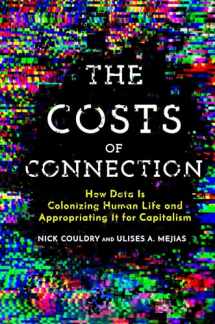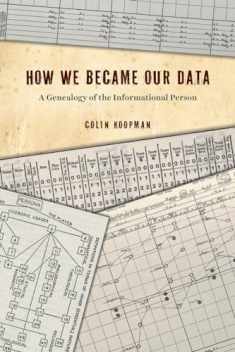
The Costs of Connection: How Data Is Colonizing Human Life and Appropriating It for Capitalism (Culture and Economic Life)
Book details
Summary
Description
Just about any social need is now met with an opportunity to "connect" through digital means. But this convenience is not free―it is purchased with vast amounts of personal data transferred through shadowy backchannels to corporations using it to generate profit. The Costs of Connection uncovers this process, this "data colonialism," and its designs for controlling our lives―our ways of knowing; our means of production; our political participation.
Colonialism might seem like a thing of the past, but this book shows that the historic appropriation of land, bodies, and natural resources is mirrored today in this new era of pervasive datafication. Apps, platforms, and smart objects capture and translate our lives into data, and then extract information that is fed into capitalist enterprises and sold back to us. The authors argue that this development foreshadows the creation of a new social order emerging globally―and it must be challenged. Confronting the alarming degree of surveillance already tolerated, they offer a stirring call to decolonize the internet and emancipate our desire for connection.


We would LOVE it if you could help us and other readers by reviewing the book
Book review





